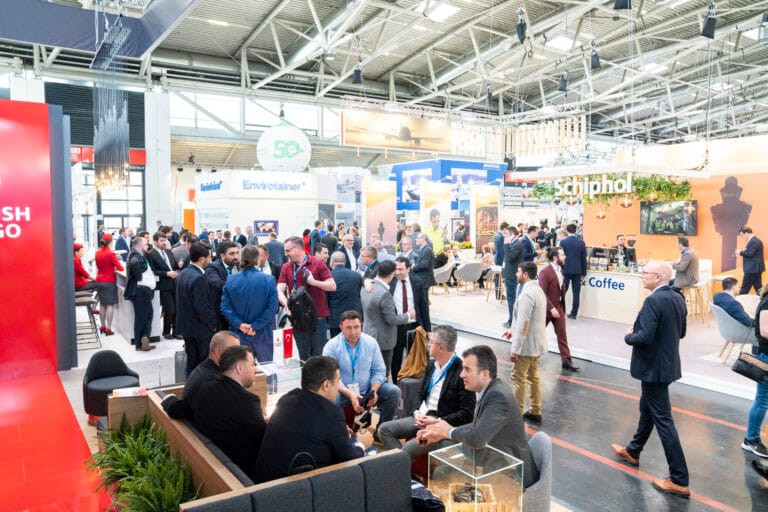The discussions at transport logistic & air cargo Europe are intense, insightful, and shaping the future of the industry. Key topics include the integration of AI and automation, sustainability, the ongoing skills shortage, and the growing importance of cybersecurity. Industry leaders and experts are weighing in on the challenges and opportunities that lie ahead.
One of the most discussed topics at the event is the growing role of AI-driven solutions in revolutionising supply chains. Automation and AI have the potential to significantly improve efficiency, streamline operations, and reduce costs. From predictive analytics that optimise delivery routes to robotic process automation in warehouses, technological advances are transforming logistics at an unprecedented pace.
But the road to full integration is not without obstacles. Many companies struggle to effectively implement these innovations. The challenge is not only about financial investment, but also about aligning new technologies with existing infrastructure and workforces. Employees must be trained to work alongside AI-driven systems, and corporate cultures must shift to a more data-driven mindset. While the potential benefits are immense, companies need a well-structured strategy to successfully harness the power of AI.
Sustainability is no longer a niche concern; it is an essential component of modern logistics. Companies across the industry are under increasing pressure to reduce their carbon footprint, whether through carbon-neutral transportation, energy-efficient warehouses, or sustainable packaging solutions. Regulatory requirements are tightening, customer expectations are shifting towards greener supply chains, and the competitive landscape now favours companies that commit to green practices.
While many companies are making significant strides in green logistics, real progress requires collective action. Partnerships between companies, policymakers, and technology providers are critical to developing scalable solutions. Innovations such as alternative fuels, electric vehicle fleets, and AI-driven efficiency improvements are paving the way for a more sustainable future. But without a collaborative approach, the industry risks falling short of its ambitious climate goals.
Another pressing issue dominating discussions is the growing skills shortage in logistics. As digital transformation reshapes the industry, traditional roles are evolving and new skill sets are in demand. However, attracting young talent to the logistics sector remains an ongoing challenge. The perception of logistics as a labour-intensive and traditional industry needs to change.
To address this challenge, companies need to invest in better training programmes, modern working models, and career development opportunities. The rise of automation and AI does not mean job losses — it means a shift in the skills required. Upskilling existing employees and positioning logistics as an innovative and dynamic field will be critical to ensuring a robust future workforce. Companies that prioritise talent development will gain a significant competitive advantage in the years to come.
As digitisation accelerates, so do cyber threats. The logistics sector is highly interconnected, with sensitive data flowing through global supply chains. Cybersecurity vulnerabilities can lead to major disruptions, financial losses, and reputational damage. The big question is: how can companies close security gaps while still benefiting from digital transformation?
Industry leaders emphasise that cybersecurity must be a priority, not an afterthought. Proactive measures such as stronger encryption, AI-driven threat detection, and comprehensive employee training are essential to mitigating risk. With supply chain attacks on the rise, companies that invest in robust security frameworks will be better positioned to protect their operations.
The key takeaway from Day 2 of the event is clear: adaptability is key. AI and automation should be viewed as opportunities rather than threats, sustainability must be addressed through collaborative efforts, and workforce development needs urgent attention. In addition, cybersecurity should be at the forefront of digital transformation strategies.





